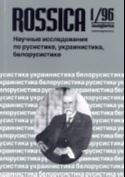
We kindly inform you that, as long as the subject affiliation of our 300.000+ articles is in progress, you might get unsufficient or no results on your third level or second level search. In this case, please broaden your search criteria.

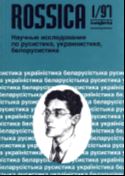
"Annals of the House of Writers", How do writers live in the Crimea
More...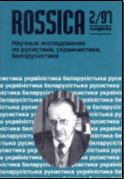
В середине ноября 1997 г. в Петербуге состоялось два интересных мероприятия: Международная конференция „Г. Г. Масарик и Россия“ (12-13 ноября 1997 г.), в организации которой приняли участие четыре общества(Институт Открытое общество, Общество братьев Чапек в С.-Петербурге, Ассоциация международного сотрудни¬ чества, С.-Петербургская ассоциация друзей Чехии и Словакии), и международная научная конференция „Взаимосвязи и взаимовлияние русской и европейских лите¬ р а т у р (13-15 ноября 1997 г.), организованная Санкт-Петербургским государственным университетом и Академией гуманитарных наук. Благодаря любезности Пражского и С.-Петербургского отделений Открытого общества и блестящей подготовке к конференции, посвященной Масарику, в ней могли принять участие пять докладчиков из Чешской Республики. Главным координатором этой конференции был известный богемист, председатель Общества братьев Чапек в С.-Петербурге, Олег Малевич. Конференция состоялась в Доме Общества дружбы и мира с народами зарубежных стран, расположенном в прекрасном здании бывшего Дворца Шуваловых на берегу Фонтанки в самом центре Петербурга. На таком же превосходном уровне проходила и вся конференция. На ее открытии и закрытии присутствовали чешский консул в С.- Петербурге г. Грушка с супругой, по приглашению которых в консульстве был устроен прием чешских участников. Конференцию посетили также петербургские гимназисты, Изучающие чешский язык. Они обратились к некоторым из докладчиков с просьбой посетить их школу. Во всем этом чувствуются хорошие традиции петербургской богемистики.
More...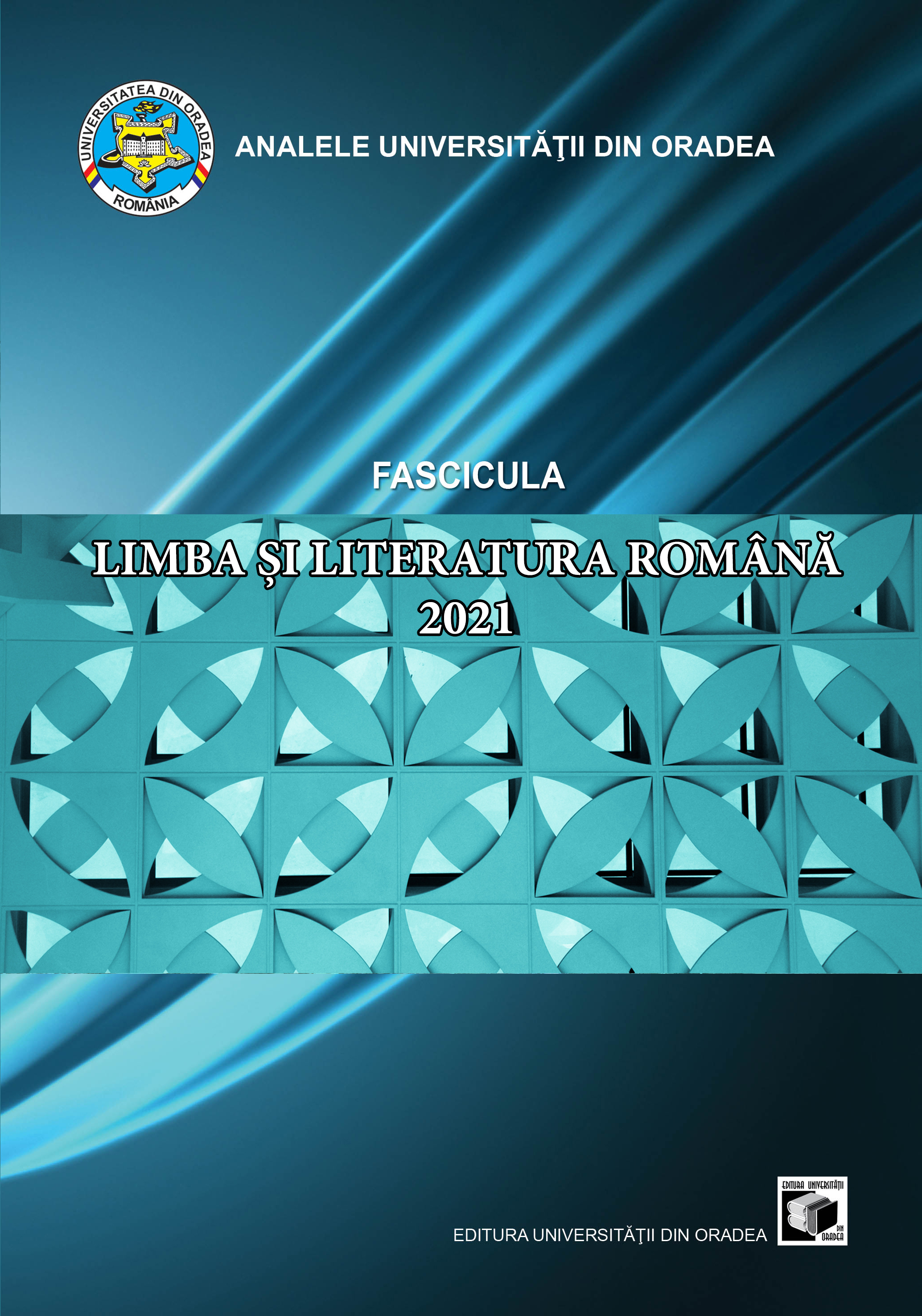
This article aims at offering a radiography of unexpected events in Romanian history through the eyes of a writer, Valeriu Anania (1921-2011). His volume of Memories is very unusual. Valeriu Anania ‘s dream was to excel in writing poetry and theatre. He followed the religious path of becoming a monk. Later Anania became Archbishop and Metropolitan of Cluj-Napoca. His spiritual vocation was very ardent. His book, “Memorii”, is a testimony of a man who chooses to be faithful to his conscience. He chose to tell the truth about his tribulations in prisons as well as about all his choices, bad and good. Anania willed special provisions about the publication of his manuscript only after his death. This way he was not tempted to embellish the truth about him. In his high-school years, Anania fancied the extremist "green shirts" youth "brotherhood”organizations because he liked their system of recruiting (faith in God, initiation, unavailability, and promised heroism). Anania never became legionary in any form of adherence. His rejection of the extremist group started in his youth. Even then, in his youth, because of his faith in God and of his deep desire to follow the path of devotion to God, he realized that he made a mistake trusting impetuousness. As a former prisonier, Anania was to suffer a stigma all his life. He had not been a follower of what was to become the extreme right. In the light of his wise age while writing the memories, this episode becomes an anatomy of a disenchantment but also a way to understand the tensions of a turbulent epoch. Instead of a pact with the reader, Valeriu Anania commits to telling the whole truth. As a genuine connector of people, more the cenobite type of monk, Bartolomeu Anania found his vocation in organizing the cultural life and education of Orthodox monasteries in Romania and U.S.A.
More...
The present paper selectively foregrounds instances of contemporary novelists’ concern and reflection on the state-of-art examination of migration in the countries they belong to as a recognition of the condition of alterity and its effects on people’s mental make up and individual identity. Multicultural social contexts bring forth situations, tendencies and necessities that have to be regulated by specific public policies so that individuals of different ethnic communities should be accepted in a spirit of freedom and equality
More...
The article gives two examples from Romanian history when politics interfered with literature, in this cases with drama or, more precisely, with the theatrical performances. The texts were censored, being considered inappropriate in the political context in which they were written, in fact not corresponding to the official ideology of the time. One example is from the Communist period – the best known for its censorship practices – but the other one belongs to a period usually considered a period of cultural, economic and democratic apogee. The conclusion is that in fact censorship has always existed in all ages, in various forms, coming mostly from the political sphere but not only, as demonstrated by many researchers of the topic.
More...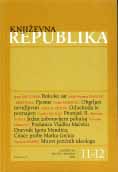
Reviews of: Kakve je boje nemir? Vesna Parun: Noć za pakost, Moj život u 40 vreća. Matica hrvatska, Zagreb, 2002; Prema enciklopedističkoj povijesti hrvatske književnosti Cvjetko Milanja: Hrvatsko pjesništvo od 1950. do 2000., II. dio. Alfa Gama, Zagreb, 2001; Barkovićeve opsesije Josip Barković: Rasplet u Rimu. P. I. P., Zagreb, 2002; Društvena kritičnost novije austrijske drame Sead Muhamedagić: Antologija novije austrijske drame. Hrvatski centar ITI-UNESCO. Biblioteka Mansioni, Zagreb, 2002; Kapitali Kellyjeve bande Peter Carey: Istinita povijest Kellyjeve bande. Preveo Vladimir Cvetković Sever, Zagreb, VBZ, 2002; Neutaživa glad za kazalištem Dalibor Foretić: Iluzija nije opsjena. Novi list — Adamić, Rijeka 2002; Priručnik iz leksikologije Danko Sipka: Osnovi leksikologije i srodnih disciplina. Budućnost, Novi Sad, 1998;
More...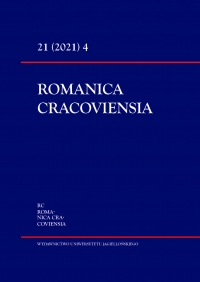
The article addresses Mihai Iovănel’s 2021 History of Contemporary Romanian Literature: 1990–2020, the first history of Romanian literature that presents the development of Romanian post-communist prose and poetry. Iovănel’s book sparked a heated debate among literary critics, historians and writers, because it discusses and redefines prevalent concepts in Romanian literary theory and criticism, focusing on the extraliterary (political, social, economic) conditioning of literary production and inscribing Romanian literature into the system of transnational literary interactions. The paper shows thus the most important assumptions of Iovănel’s work and discusses the critical reception of the volume among Romanian intellectuals.
More...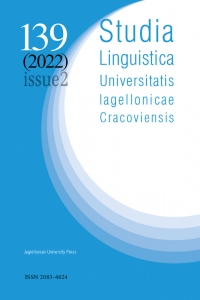
In preference to the common assumption that Óðinn’s ravens daily gather general information from around the world and report back to their master, this study identifies their principal informants as the newly dead (recently slain warriors and hanged men), and the information gathered not simply wisdom but tactical intelligence needed for the eventual cataclysmic battle of Ragnarǫk, in which Óðinn’s troop of fallen warriors, the Einherjar of Valhǫll (named in Gylfaginning in the same context as the ravens), will also participate. The study addresses the central questions of chthonic wisdom, of how the dead (are presumed to) know what is hidden from the living, and why Snorri, in contrast to the skalds, paints an innocuous picture of the ravens.
More...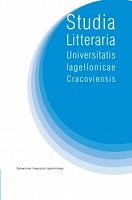
The author analyses the selected 12th and 13th-century French Arthurian romances as an example of locus medicinalis, i.e., the meeting place of literature and the medical knowledge of the time, where literary fiction intersects with the medical reality, for which melancholy was one of the major challenges. Like medicine, literature takes up the challenge, by seeking to describe the symptoms of melancholy, to define its causes and above all to propose an effective treatment to relieve it. In the romances analyzed, the concept of melancholy is similar to that of acedia, the vice of the soul manifested by boredom, indifference, fatigue, and exhaustion of the heart. The condition was attributed to the activity of the demon of acedia, called daemon meridianus by Cassian and Evagrius of Pontus. In the Arthurian romances analyzed in the article, in which acts of psychological and spiritual nature are of main importance, the treatment of melancholy is based on the holistic Christian vision of man, according to which the state of mind, soul, and body influence each other. Cathartic tears, memory healing, friends’ support, the presence of the beloved, joy that chases away sadness, prayer, conversion, confession, and pilgrimage prove to be more efficient than theriac, electuary, or any medicine.
More...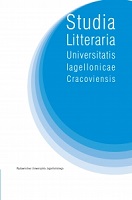
This article examines melancholia and its stylistic rendering in three of Marguerite de Navarre’s Chansons spirituelles that do not deal with bereavement, namely Songs 29, 45, and especially 34. The Queen uses various medical, philosophical, and literary sources to describe melancholy, although she never quotes Aristotle or humoral medicine. The same applies to literary borrowings from the Imitation of Christ, which enable her to give a willful Christian response to life’s sufferings. Most of all, Marguerite spiritualises love motifs used by Petrarch in his Canzoniere, especially the dolce pena concetto. This is achieved thanks to the interpenetration of Petrarch’s amorous vocabulary with the inner life discourse of her characters’ souls, tossed between euphoria and suffering, in their quest for divine love. This study also reviews Marguerite’s use of melancholia in La Coche, la Comédie des quatre femmes and l’Heptaméron, where it remains in the realm of worldly concerns and raises moral and ethical questions.
More...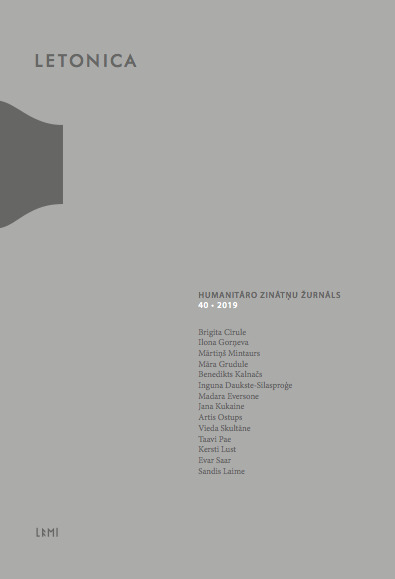
In ancient theoretical thought, a great deal of attention is devoted to the guidelines that should be applied when composing an encomium. This fact is not surprising since the encomium tends to mark the crucial points in the life of a society as well as the individual by perpetuating them to a certain extent and thus making known to future generations. Among encomia, city encomium, which according to the propositions of ancient theoreticians can be devoted to people, gods, places and things, is particularly distinguished. Ancient theoretical thought generalizes and discloses the issues, which might be expected from the city encomium, possibly providing an insight also into those ancient texts, which have not survived. Thus, the intention of the article is to consider the most essential characteristics of the city encomium as they are reflected in both ancient theoretical thought and its reception by using the poem “The Encomium to Riga” written by the 16th century Riga humanist Basilius Plinius and first published in 1595 as an example. The poem belongs to neo-Latin texts, which are distinctive for their conscious return to classical standards and theoretical as well as literary models. City laudation or encomium belongs to neo- Latin poetry texts particularly popular among poets-humanists in Europe up to the 17th century. Ancient theoretical thought in the context of city laudation is rather consequent in the distinction of the following three aspects: city foundation or growth, achievements of its citizens and geographical placement of the city. These aspects are touched upon already by Roman author Quintilianus (1st cent. AD); however, the theoretician writing treatises in the Greek language Menander Rhetor (2nd–3rd cent. AD) develops these aspects and discloses them in more depth. In the poem “The Encomium to Riga” by Basilius Plinius, these aspects of city laudation achieve artistic expansion disclosing the best qualities of the Livonian metropolis Riga and its citizens, as well as allow for an obvious evaluation of the continuity and reception of the tradition. The propositions found in ancient texts have not lost their topicality. Time periods and the respective situations are subject to changes but the basic propositions that guide of the creation of the city encomium remain and acquire creative development in conformity with the peculiarities of the time period. Furthermore, they provide a tangible sensation of a city as a metropolis of high-achieving citizens.
More...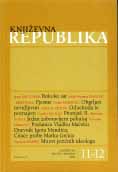
Rijetke su knjige u društveno-humanističkim znanostima posljednjih tridesetak godina koje su doživjele sudbinu »kanonizacije«. Vjerojatno bi ih se teško moglo nabrojiti na prste jedne ruke. Cak se ni planetarna moda s postmodernizmom ne može smatrati povoljnim ozračjem za stvaranje neke knjige koja bi uzdrmala svijest, preokrenula paradigme, uzbunila duhove sa svih zaraćenih strana kritike, izišla iz zabrana akademske retorike i postala svojim jednostavnim naslovom - program, ideologija, nova paradigma. To se nije dogodilo ni Derridai, ni Foucaultu, ni Lyotardu, možda ipak samo Lacanu, već čovjeku koji je upravo iz epistemoloških voda poststrukturalizma i marksizma stvorio svoju veliku priču kao radikalnu kritiku europocentrizma. Riječ je, naime, o Edwardu Saidu i njegovoj studiji Orientalism: A Western Interpretations of the Orient objavljenoj 1978. u Londonu.
More...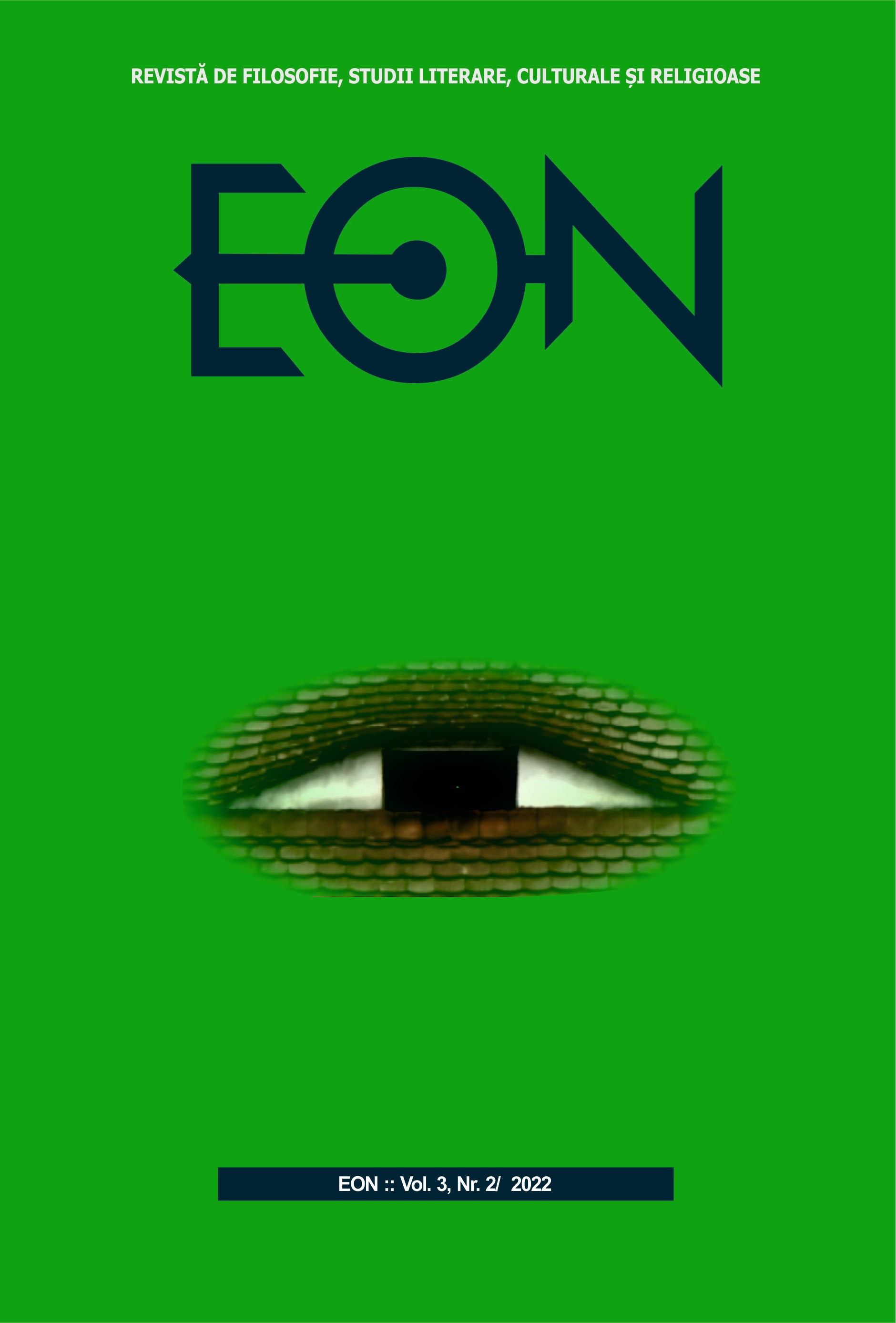
In his latest poetry volume, "Murmur Beyond Silence", Eugen D. Popin offers us a mythico-religious literary journey through some of the essential spheres of life (nature, family, love), as well as poetic commentaries on Romania's communist regime and the war now being waged against the human species. The volume was published in Romanian in 2021 and in English in 2022.
More...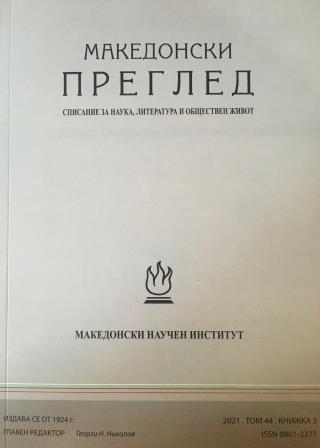
The article outlines the main directions in the activity of the Miladinov Brothers. Their manifestations in the context of the general cultural orientation of the Bulgarian society from the first half of the 19th century are traced. The author points out the importance of the then excellent education of Dimitar and Konstantin, which gives them the opportunity to express themselves as awakeners of the people and compilers of the most important collection of Bulgarian folk songs from the era of the Revival. Constantine‘s connections with Bulgarian students and the Bulgarian literary circle in Moscow, as well as the search for support from Russian Slavists for the publication of the collection in Russia, are discussed in detail.
More...
of Macedonia within the federal Tito’s Yugoslavia, the collection of the Miladinov brothers became inconvenient for the rulers and its original was hidden. A mass falsification and manipulation of public opinion began. The collection was renamed. Several generations have been formed who think and know that the Miladinov brothers have written a collection called “Macedonian Folk Songs”. Today, in each of the newer publications published in Skopje, the authors, although acknowledging that the name of the collection is “Bulgarian Folk Songs”, always state a number of reasons for this, and continue to call the book with the impersonal “the collection of the Miladinov brothers”. Other researchers, driven by the desire to find some excuse and justification for the title of the collection “Bulgarian Folk Songs”, attributed the blame for this to the Croatian bishop Josip Strossmayer (1815 – 1905).
More...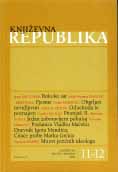
Reviews of: Cvijeta ili o žudnji: Luko Paljetak: Skroviti vrt: Dnevnik Cvijete Zuzorić, plemkinje dubrovačke. Profil International, Zagreb, 2004.; Sanjalačke oči i djevojački osmjeh ili Netko mora za nas patiti Sunčana Skrinjarić: Kuća od riječi. Izbor i predgovor Ante Matijašević. Biblioteka Biseri hrvatske književnosti, Mozaik knjiga, 2004.; Ironizacija Evrope Ognjen Spahić: Hansenova djeca. Otvoreni kulturni forum i Durieux, Zagreb-Cetinje, 2004.; Pozitivizmu usuprot Enver Kazaz: Bošnjački roman XX vijeka. Naklada Zoro, Zagreb-Sarajevo, 2004.; Kako se Coetzee prestao brinuti i zavolio književnost J. M. Coetzee: Život životinja. S engleskoga preveli Giga Gračan i Petar Vujačić. AGM, Zagreb, 2004.; Životinje kao izazov humanizmu ili četiri komentatora traže Coetzeejev lik John Maxwell Coetzee: Život životinja. Komentatori: Marjorie Garber... [et al.]. Uredila i uvod napisala Amy Gutmann, preveo Petar Vujačić, »Uvod« i »Refleksije« prevela Giga Gračan. AGM, Zagreb, 2004.; Od olovnih do apsurdnih vremena Tihomir Dujmović: Apsurdna vremena. Naklada Ljevak, Zagreb 2004.
More...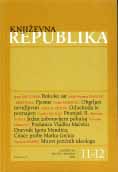
Reviews of: „Neprevedena djela Virginie Wolf”. Centar za ženske studije, Zagreb, 2003.-2013; Alain Finkielkraut: “Pametno srce”. Litteris, Zagreb, 2014; Ivo Brešan: “Mrtvima ništa ne treba”. Profil, Zagreb, 2014; Vesna Miović: “Židovke u Dubrovačkoj Republici”. Zagreb - Dubrovnik, Hrvatska akademija znanosti i umjetnosti, Zavod za povijesne znanosti u Dubrovniku, 2013; “Stjepan Đureković - što ga je ubilo?” Priredio Branko Vukas. Naklada Pavičić, Zagreb, 2014; Orhidea Gaura Hodak: “Tuđman i Perković”. Profil, Zagreb, 2014.
More...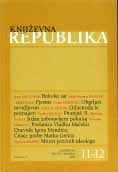
Reviews of: Iznimnost autorstva Viktora Žmegača- Viktor Žmegač: Vrhunski europski romani /po mom izboru/. Matica hrvatska, Zagreb, 2021.; Djelo koje opravdava svoje ambicije -Ivo Goldstein: Antisemitizam u Hrvatskoj od srednjeg vijeka do danas. Fraktura, Zaprešić, 2022.; O (za)jednosti u doba odstojanja -Andrijana Kos Lajtman i Damir Radić: Zarazna zona. Fraktura, Zagreb, 2021.; Rizik vrijedan truda Hinko Gottlieb: Ključ od velikih vrata. Bodoni, Zagreb, 2021.; Izvanredan prozni ciklus John Williams: Ništa osim noći. Fraktura, Zagreb, 2022.;
More...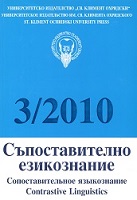
Reviews of: D. Ivanova. Unwritten pages to the history of the Bulgarian literary language. Learning aid. First part. [Slavic perspectives. ] Plovdiv, Paisii Hilendarski University Publishing House, 2008. 394 p.
More...